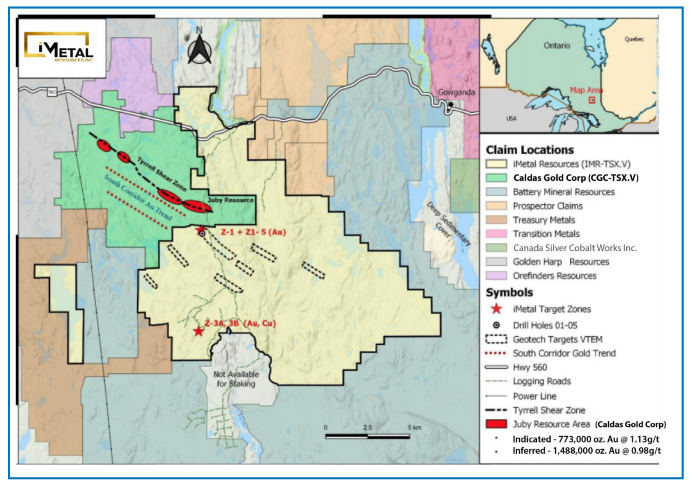Uncertainty in the Arab Street and Rising Food Costs II
Source: David and Eric Coffin, HRA Advisories (2/28/11)
Events in Arabia have been sending flutters through the market.
Events in Arabia have been sending flutters through the market. Egypt, by far the largest Arab state, has shifted into a virtuous economic growth cycle confirming it as an important emerging market regional center. That said, it continues to have a high population growth and economic expansion has to be high to maintain current wealth levels. As street demonstrations go, these haven't been all that chaotic given they lack a pro rallying point. It is hard to say just what a growing Arab middle class will want beyond a say in its own governance. It was that middle class that first called for political change, but the poor who are trying to cope with rising food costs have also joined in. Both deserve some consideration.
Concern about a radical emergence from this call for change is valid insofar as it's difficult to predict what would come out of disparate voices having their say. But there is little in Egypt's past, or the voices of its middle class or its military, suggesting radicalism. Even though the process of change is still being formed in Egypt, and in Tunisia, it is the broader region's politics that will now most likely to concern markets. Baring an unlikely spread of this street action to Saudi Arabia, the protests in Yemen and Jordan are the next greatest areas of ‘contagion concern'. Both also have western leaning governments and groups agitating for change in a neighboring state.
A big concern is upheaval in an oil kingdom or cross-border hostilities emerging that toss a lit match into oil markets. That much is obvious. Idle urban youth have been the region's main problem for generations. This round of agitation is a reminder that this demographic problem isn't going away any too quickly. So the bigger question now is: where does a youthful population transition to as it pushes away from rule by a heavily centralized wealth base? To support these calls for democracy in Egypt and Tunisia means accepting the outcome of ballot boxes and that the process can generate unexpected results in its early going. Markets don't like surprises, but stability is usually the fruit of vox populi when it flowers in its own soil.
In January we cautioned that upheaval might scuttle the market during this period of shifting geopolitical balance for which a new handbook about dealing with the unexpected still needs to be written. That was said in the context of US-Sino relations, at least in its primary sense. Markets have certainly been riled by these unexpected events in Egypt. Does this fit our concern?
It does insofar as Egypt's stability has been important to the mid East balance. Fear of chaos there is shared by just about everyone and this should include China. Of course China's leadership also fears agitation for democratic change. Direct involvement by China in Mid East doings is likely to be limited, but this sea change could speed along writing some of that new geopolitical handbook. And, how the US deals with allies in transition may influence how China deals with events closer to home.
What comes next from the Arab contagion is still an open question, but it's important to note that Algerians have been joined by Yemenis and Jordanians in a focus on rising food costs. Food, more than any other commodity, can almost instantly morph into an issue that topples government. Rising metal prices that are our stock in trade can often be passed on since they are only a small part of many end-use costs. It's tougher to avoid passing on food cost gains. The impact of higher food prices is hurting poorer classes across the developing world. And, unlike the grain price spikes in 2008 the current shortages aren't about a bio fuel craze. Weak harvests and more meat consumption are creating real shortage.
Because it's a large part of the cost basket, food is also driving inflation rates higher in the growth economies. Demand push is driving up costs across many sectors in these economies, but food is increasingly the main culprit. Central banks in a number of growth regions have started to raise interest rates again. BRIIC countries have all done so, and there is little sign that trend will end soon. The most recent rate increase by China did cause a hiccup in the copper and other base metal markets, though so far just that. Inflation rates are climbing in enough areas that even a rate increase by China did not spook the gold market this time. Buyers seemed more worried about inflation than a potential direct impact on currencies.
More rate increases in short order would be tougher on base metals. Base metals are economic growth barometers. Metal prices may pause on further sign that the governments of the economies doing all the buying in the metals space are serious about cooling their economies. We don't expect anything too dramatic in terms of pull backs, but base metals are priced for perfection right now so a slow down won't be shocking. Precious metals will be supported by inflation concerns as well as concerns about the Arab and other restive Streets.
Unfortunately, it's unlikely rate increases will have much impact on food prices. The good news is that higher prices for farmers spread incremental wealth gains pretty broadly. It's no coincidence that one of the best growth regions in the next few years will be Africa. That is a direct result of higher commodity prices.
Higher food costs because more people can afford them are obviously a good thing. Alas, agriculture has supply constraints just like the mining sector does, even before random weather events are factored in. Like the metals market, it's a pricing issue that may wax and wane but won't go away for a long time. It's an issue that bears watching. The poorer classes in many developing countries can to put off buying a fridge, but can't put off buying the stuff that would go into it.
Like most other gains, higher food prices are a good news/bad news story that will take nimble markets, and politicians, to manage. Those that lack flexibility may find themselves swept away. Adjustment will eventually get made to the new cost regime. In the mean time there will be opportunity for those in agribusiness sector who focus on improving yields. Bigger names in the fertilizer business such as Potash Corp of Saskatchewan (POT-TSX, NYSE) and Agrium Inc (AGU-TSX, NYSE) should be in for continued steady growth, and there are increasing numbers of junior companies on our radar screen that may do very well by focusing on resource building for this increasingly important market space. In fact, the growth in the bulk minerals demand is generating the best market for start up opportunities the space has ever seen.
It's certainly true that Arab politics has been reminding us that we live in interesting times, but unlike some we don't believe that such times need to be viewed as a curse. A broadening of governance in the Arab world will generate the same benefits that it has elsewhere. That will in the longer run is also the best route to dealing with the rising food costs since it is part and parcel of open markets thinking.
The HRA Journal, Dispatch and Special Delivery are independent publications produced and distributed by Stockwork Consulting Ltd, which is committed to providing timely and factual analysis of junior mining, resource, and other venture capital companies. Companies are chosen on the basis of a speculative potential for significant upside gains resulting from asset-base expansion. These are generally high-risk securities, and opinions contained herein are time and market sensitive. No statement or expression of opinion, or any other matter herein, directly or indirectly, is an offer, solicitation or recommendation to buy or sell any securities mentioned. While we believe all sources of information to be factual and reliable we in no way represent or guarantee the accuracy thereof, nor of the statements made herein. We do not receive or request compensation in any form in order to feature companies in these publications. We may, or may not, own securities and/or options to acquire securities of the companies mentioned herein. This document is protected by the copyright laws of Canada and the U.S. and may not be reproduced in any form for other than for personal use without the prior written consent of the publisher. This document may be quoted, in context, provided proper credit is given.
© 2010 Stockwork Consulting Ltd. All Rights Reserved.
Published by Stockwork Consulting Ltd.
Box 85909, Phoenix AZ, 85071
Toll Free 1-877-528-3958
[email protected]
http://www.hraadvisory.com
Concern about a radical emergence from this call for change is valid insofar as it's difficult to predict what would come out of disparate voices having their say. But there is little in Egypt's past, or the voices of its middle class or its military, suggesting radicalism. Even though the process of change is still being formed in Egypt, and in Tunisia, it is the broader region's politics that will now most likely to concern markets. Baring an unlikely spread of this street action to Saudi Arabia, the protests in Yemen and Jordan are the next greatest areas of ‘contagion concern'. Both also have western leaning governments and groups agitating for change in a neighboring state.
A big concern is upheaval in an oil kingdom or cross-border hostilities emerging that toss a lit match into oil markets. That much is obvious. Idle urban youth have been the region's main problem for generations. This round of agitation is a reminder that this demographic problem isn't going away any too quickly. So the bigger question now is: where does a youthful population transition to as it pushes away from rule by a heavily centralized wealth base? To support these calls for democracy in Egypt and Tunisia means accepting the outcome of ballot boxes and that the process can generate unexpected results in its early going. Markets don't like surprises, but stability is usually the fruit of vox populi when it flowers in its own soil.
In January we cautioned that upheaval might scuttle the market during this period of shifting geopolitical balance for which a new handbook about dealing with the unexpected still needs to be written. That was said in the context of US-Sino relations, at least in its primary sense. Markets have certainly been riled by these unexpected events in Egypt. Does this fit our concern?
It does insofar as Egypt's stability has been important to the mid East balance. Fear of chaos there is shared by just about everyone and this should include China. Of course China's leadership also fears agitation for democratic change. Direct involvement by China in Mid East doings is likely to be limited, but this sea change could speed along writing some of that new geopolitical handbook. And, how the US deals with allies in transition may influence how China deals with events closer to home.
What comes next from the Arab contagion is still an open question, but it's important to note that Algerians have been joined by Yemenis and Jordanians in a focus on rising food costs. Food, more than any other commodity, can almost instantly morph into an issue that topples government. Rising metal prices that are our stock in trade can often be passed on since they are only a small part of many end-use costs. It's tougher to avoid passing on food cost gains. The impact of higher food prices is hurting poorer classes across the developing world. And, unlike the grain price spikes in 2008 the current shortages aren't about a bio fuel craze. Weak harvests and more meat consumption are creating real shortage.
Because it's a large part of the cost basket, food is also driving inflation rates higher in the growth economies. Demand push is driving up costs across many sectors in these economies, but food is increasingly the main culprit. Central banks in a number of growth regions have started to raise interest rates again. BRIIC countries have all done so, and there is little sign that trend will end soon. The most recent rate increase by China did cause a hiccup in the copper and other base metal markets, though so far just that. Inflation rates are climbing in enough areas that even a rate increase by China did not spook the gold market this time. Buyers seemed more worried about inflation than a potential direct impact on currencies.
More rate increases in short order would be tougher on base metals. Base metals are economic growth barometers. Metal prices may pause on further sign that the governments of the economies doing all the buying in the metals space are serious about cooling their economies. We don't expect anything too dramatic in terms of pull backs, but base metals are priced for perfection right now so a slow down won't be shocking. Precious metals will be supported by inflation concerns as well as concerns about the Arab and other restive Streets.
Unfortunately, it's unlikely rate increases will have much impact on food prices. The good news is that higher prices for farmers spread incremental wealth gains pretty broadly. It's no coincidence that one of the best growth regions in the next few years will be Africa. That is a direct result of higher commodity prices.
Higher food costs because more people can afford them are obviously a good thing. Alas, agriculture has supply constraints just like the mining sector does, even before random weather events are factored in. Like the metals market, it's a pricing issue that may wax and wane but won't go away for a long time. It's an issue that bears watching. The poorer classes in many developing countries can to put off buying a fridge, but can't put off buying the stuff that would go into it.
Like most other gains, higher food prices are a good news/bad news story that will take nimble markets, and politicians, to manage. Those that lack flexibility may find themselves swept away. Adjustment will eventually get made to the new cost regime. In the mean time there will be opportunity for those in agribusiness sector who focus on improving yields. Bigger names in the fertilizer business such as Potash Corp of Saskatchewan (POT-TSX, NYSE) and Agrium Inc (AGU-TSX, NYSE) should be in for continued steady growth, and there are increasing numbers of junior companies on our radar screen that may do very well by focusing on resource building for this increasingly important market space. In fact, the growth in the bulk minerals demand is generating the best market for start up opportunities the space has ever seen.
It's certainly true that Arab politics has been reminding us that we live in interesting times, but unlike some we don't believe that such times need to be viewed as a curse. A broadening of governance in the Arab world will generate the same benefits that it has elsewhere. That will in the longer run is also the best route to dealing with the rising food costs since it is part and parcel of open markets thinking.
The HRA Journal, Dispatch and Special Delivery are independent publications produced and distributed by Stockwork Consulting Ltd, which is committed to providing timely and factual analysis of junior mining, resource, and other venture capital companies. Companies are chosen on the basis of a speculative potential for significant upside gains resulting from asset-base expansion. These are generally high-risk securities, and opinions contained herein are time and market sensitive. No statement or expression of opinion, or any other matter herein, directly or indirectly, is an offer, solicitation or recommendation to buy or sell any securities mentioned. While we believe all sources of information to be factual and reliable we in no way represent or guarantee the accuracy thereof, nor of the statements made herein. We do not receive or request compensation in any form in order to feature companies in these publications. We may, or may not, own securities and/or options to acquire securities of the companies mentioned herein. This document is protected by the copyright laws of Canada and the U.S. and may not be reproduced in any form for other than for personal use without the prior written consent of the publisher. This document may be quoted, in context, provided proper credit is given.
© 2010 Stockwork Consulting Ltd. All Rights Reserved.
Published by Stockwork Consulting Ltd.
Box 85909, Phoenix AZ, 85071
Toll Free 1-877-528-3958
[email protected]
http://www.hraadvisory.com


























































